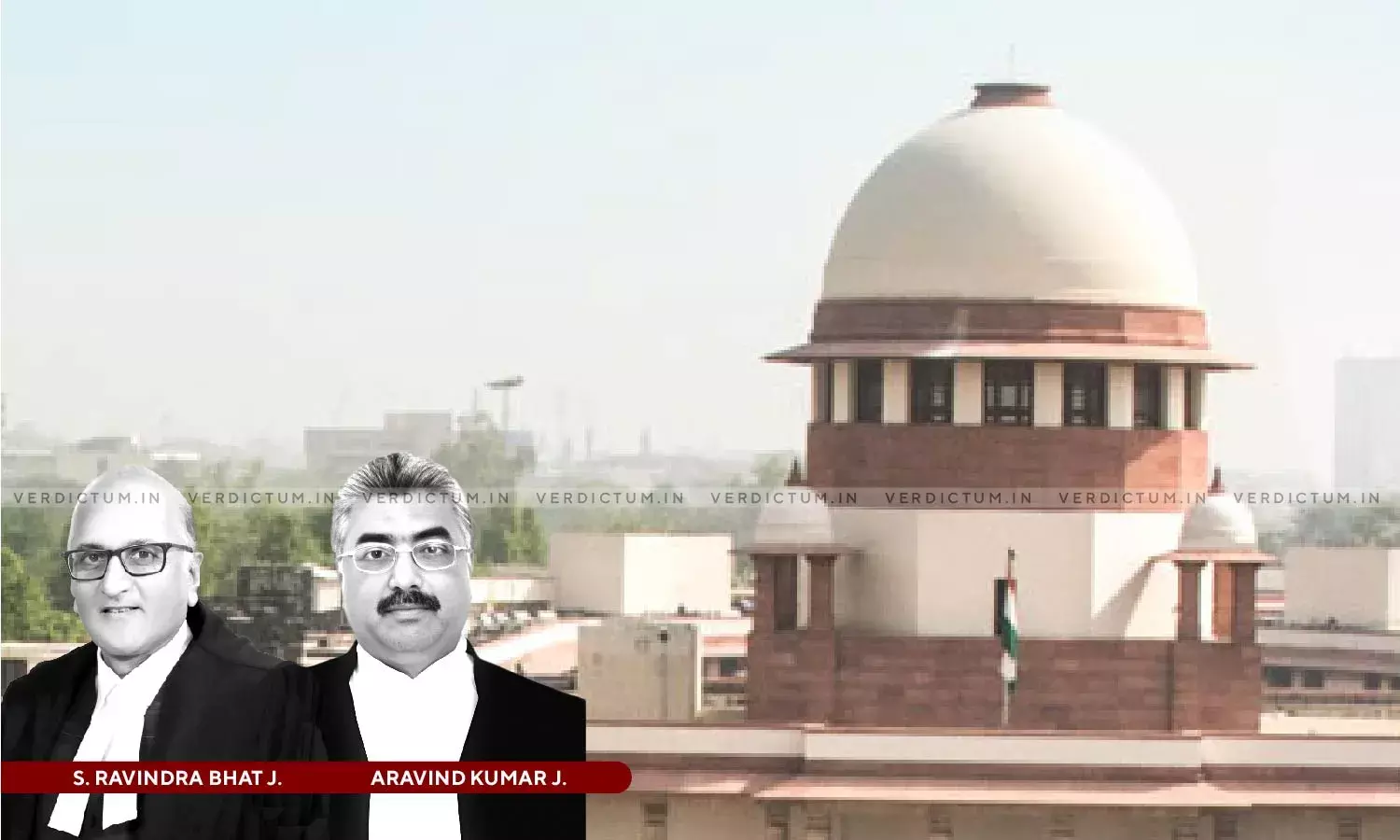Burden Of Proof For Change In Classification Of Product Lies On Department If It Wishes To Challenge Long-Accepted Mode: SC On Classification Of 'Zarda'

Finding that there is no fraud or collusion or any wilful misstatement or separation of facts with intent to evade payment of duty to invoke the provisions of Section 11A (4) of Central Excise Act, 1944 in the present case, the Supreme Court refused to interfere with the findings of the Third Member Bench of CESTAT which has held that the product manufactured by the petitioner was ‘chewing tobacco’ and not ‘zarda/jarda scented tobacco’ as claimed by the Revenue.
The Supreme Court found that the Department has not provided any sufficient evidence before this Court determine the nature, characteristics, contents, and composition of the product in order to adjudicate the present dispute purely on the issue of classification and hence no attempt can be made to determine the appropriate entry of classification for the product manufactured by the assessee at the relevant period of time of the dispute.
A Two Judge Bench of Justice S. Ravindra Bhat and Justice Aravind Kumar observed that “It is settled law that the onus/burden of proof for change in classification of the product lies on the Department, particularly when it wishes to challenge a long-accepted classification”.
Referring to the decision in case of HPL Chemicals Limited Vs. CCE, Chandigarh [2006 5 SCC 208], the Bench found that no evidence of whatsoever nature has been placed by the Revenue to raise any presumption, and the entire proceedings are based upon “audit objection” and the Revenue attempts to rely upon the additives to the ‘chewing tobacco’ as the basis for arriving at a conclusion, that assessee had cleared the ‘jarda/zarda scented tobacco’ which is not even supported by the samples drawn or inquiry made from the traders or consumers or stockist, suppliers and buyers.
Advocate Nisha Bagchi appeared for the Appellant/ Revenue Department, whereas Advocate Vivek Kohli appeared for the Respondent/ Assessee.
As per the brief facts of the case, during the audit of the accounts of assessee, the department noticed that the assessee was manufacturing ‘zarda/jarda scented tobacco’ and was claiming it as ‘chewing tobacco’. The stand of the assessee has been that they were manufacturing varieties of flavoured ‘chewing tobacco’, and that raw tobacco is mixed with an additive mixture which is manufactured by mixing perfumery compounds received from the noticee’s Delhi Unit itself. Based on this statement and precisely because the product manufactured by the assessee seems to not be ‘chewing tobacco’, a show cause notice came to be issued by calling upon the assessee to show cause as to why the short-paid duty amounting to Rs.4,28,65,508/- should not be recovered. The said show cause notice came to be adjudicated and the Commissioner confirmed the said demand.
When the matter reached the CESTAT, the judicial member held that the appellant (assessee) had properly classified it as ‘chewing tobacco’ under CET SH 2403 9910, whereas the technical member held that the product manufactured by the appellant is to be classified as ‘zarda/jarda scented tobacco’ under CET SH 2403 9930 and should be assessed under the provision of Section 4 of CE Act, for the relevant period and with effect from 11.07.2006 under Section 4A when specific Notification No.16/2006 dated 11.07.2006 came into force. In the light of the difference of opinion, the matter came to be referred to the opinion of a third member who concurred with the view expressed by the judicial member and held that the product manufactured by the petitioner was ‘chewing tobacco’ and not ‘zarda/jarda scented tobacco’ as claimed by the Revenue.
After considering the submission, the Bench noted that the product manufactured by the assessee is sold as ‘Gopal zarda’ and both the members of the tribunal namely, technical members and judicial members are ad idem on the issue of the manufacturing process of the goods and the product in question namely, they all agree that tobacco flavouring substance is added and the judicial member has clearly held that the product is marketed as “flavoured chewing tobacco”.
The Bench found that an inquiry was conducted in respect of assessee’s product and the superintendent in-charge of the respondent’s factory furnished the reports to the Deputy Commissioner after visiting the factory of the assessee, inspected the machines and the product manufactured, since the assessee had declared in Form 1 to the effect that the product manufactured by it is ‘zarda/jarda scented tobacco’.
The Bench noted that the stand of the assessee has been consistent to the effect that product manufactured by it is to be classified as ‘zarda/jarda scented tobacco’ and at the insistence of the jurisdictional Deputy Commissioner the assessee was classifying the goods under CET SH 2403 9910 i.e., ‘chewing tobacco’, for which there was also an order of determination passed under Rule 6(2) of CTPM rules.
“The assessee had clearly declared his product as ‘zarda/jarda scented tobacco’ falling under sub-heading 2403 9930 in Form 1 filed and based on the said declaration, capacity determination order dated 04.03.2015 under rule 6(2) had been passed re-classifying the product as ‘chewing tobacco’. Accordingly, for the period April 2015 in Form-1 the assessee had described the product as ‘Jayanti Zarda Scented- 2403 9910’. However, in the capacity determination order dated 05.05.2015, the Deputy Commissioner classified the goods as ‘chewing tobacco’”, added the Bench.
As such, the Bench highlighted that there was no misstatement or suppression of facts, collusion, or fraud in the instant case.
Cause Title: Commissioner of Central Excise v. M/s Urmin Products and Ors. [Neutral Citation: 2023 INSC 951]
Click here to read/ download the Judgment

